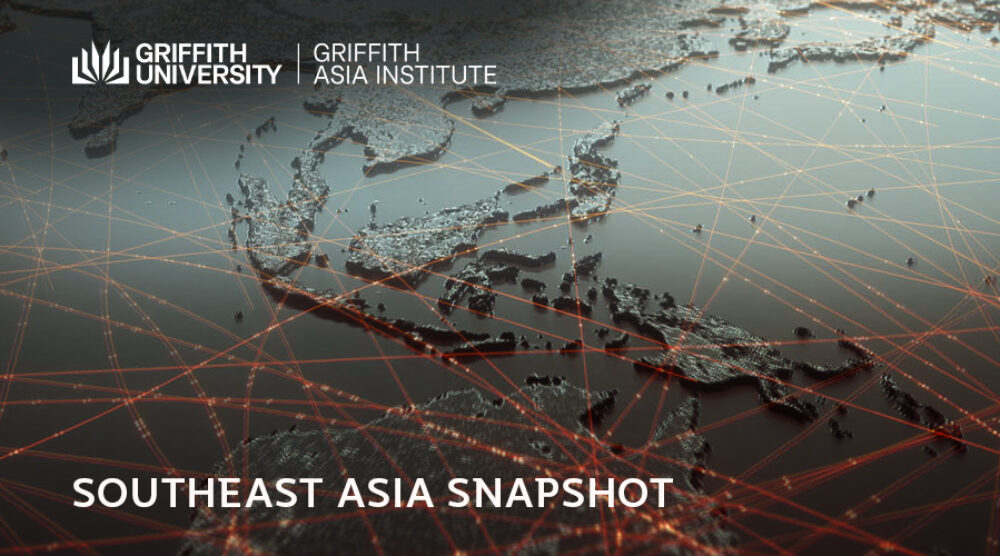The current political situation in Cambodia
Ahead of the national elections in July 2023, Cambodia has seen more political momentum including the disqualification of the Candlelight Party from the election, and a private visit of the former CNRP leader – Sam Rainsy – to Malaysia.
Cambodia’s biggest opposition party – the Candlelight Party (CP) – was disqualified from participating in the national election that will be held in July 2023. Before its disqualification, the Cambodia National Election Committee (NEC) refused to register the Candlelight Party as the CP failed to provide the necessary documents to the NEC. The CP filed an appeal to Cambodia’s Constitutional Council to overturn the NEC’s decision. However, the Constitutional Council rejected the appeal, which resulted in the disqualification of the CP. This means the current ruling party – the Cambodia People’s Party (CPP) – will face no major opposition party although 18 minor political parties have officially been registered for the upcoming election.
In response to their disqualification, the CP called for a large rally in Phnom Penh to protest the Constitutional Council’s ruling before the upcoming general election. However, Prime Minister Hun Sen instructed the authorities to arrest anyone who attempts to cause social unrest and disrupt public order or organize social media campaigns. He also appealed to all supporters of the CP, in mid-May 2023, not to take any unlawful actions and warned that “an iron fist” would be used against the leaders of the CP and its supporters if any demonstrations are held.
The CP spokesman Kimsour Phirith said “the absence of the Candlelight Party from the election means the voice of the people is dismissed”. Others believed the Cambodian court is under the influence of Prime Minister Hun Sen’s government and his Cambodian People’s Party. The ASEAN Parliamentarians for Human Rights (APHR) said “the Cambodian government is clearly fishing for any excuse to block opposition parties from competing” while FORUM-ASIA, the EU, the US, and the embassies of France, Germany, and Australia all have expressed concerns over this issue.
In a related matter, the former Cambodian opposition leader – Sam Rainsy – entered Malaysia on a private visit, on 31 May 2023, on his way from Australia to France. He is said to have held a meeting with Malaysian MP Wong Chen before boarding his flight the next day. The Cambodian Prime Minister reacted aggressively to his visit and threatened to welcome Sam Rainsy with a BM-21 Grad self-propelled 122mm multiple rocket launcher if he decided to enter Cambodia. PM Hun Sen said that if Malaysia allowed Sam Rainsy to enter the country, the relationship between the two countries would be hurt. PM Hun Sen also claimed that the Malaysian PM Anwar Ibrahim promised to him not to let Sam Rainsy enter Malaysia; however, Sam Rainsy did finally enter the country.
The ban of the CP has removed the Cambodian People’s Party’s sole major competitor from the national election and this is likely to result in the CPP winning the election in July.
The US rejects Thailand’s request to buy F-35 jets
Thailand’s request to buy the F-35 stealth fighter jet from the United States has been informally declined by Washington over the country’s issues with training and technical requirements.
Thailand had planned to budget over USD 400 million to replace its ageing F5 and F-16 fighter jets with the US’s Lockheed Martin (LMTN) F-35A jet fighters. However, the sale of those fighters was subject to technical requirements and maintenance capabilities that the US was unable to provide to Thailand. To date, the fighter aircrafts are only sold to the United States’ closest allies, including Australia, Japan, South Korea, and Singapore.
Although the US has expressed its willingness to reconsider this request once the Royal Thai Air Force (RTAF) attains a certain level of readiness, some still believed the rejection may have been because President Joe Biden’s administration believes Bangkok is tilting too much towards Beijing. Despite this setback, RTAF spokesman Prapas stated that Thailand would continue its plan to replace its F-16 jets and the US hasd offered Thailand the upgraded F-15 and F-16 models as alternatives.
The US refusal to sell its F-35 aircraft has signaled Washington’s unreadiness to militarily cooperate with Thailand while China continues to expand its presence in the region.
The US, the Philippines, and Japan coast guards hold a joint drill
The United States held a joint coast guard exercise with Japan and the Philippines from 1 – 7 June, the first trilateral joint coast guard exercise between the three nations.
This trilateral drill was carried out in the Philippines’ province of Bataan, facing the South China Sea, to strengthen interoperability and included maritime law enforcement training and maneuvering drills. The Philippines Coast Guard (PCG) deployed four of its vessels, two of which are multi-role response vessels that Manila acquired from Tokyo. The drill included about 400 crew members on four ships with Australia and India intended to participate as observers.
The PCG spokesman ensured that the drill “is a search and rescue, and law enforcement. It has nothing to do with the West Philippines Sea [dispute]”. According to some analysts, Washington and Tokyo are helping Manila boost its maritime security capabilities. Others believed this drill could fuel the level of concern of Beijing, which looks with growing concern at the consolidation of military cooperation between the US, Japan, and the Philippines, amid the possibility of conflict in the area.
This first trilateral coast guard exercise reinforces the US’ placing significant importance ion the Philippines, while at the same time, it shows that Japan is looking to increase its involvement in the Indo-Pacific.
AUTHOR
Sovinda Po is a Research Assistant at the Griffith Asia Institute.








